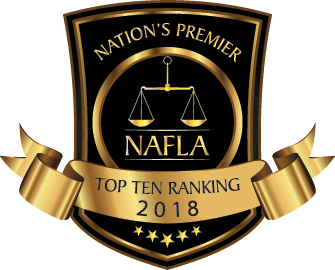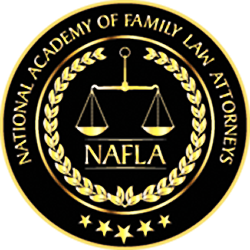As a long time advocate for children and as a former Attorney for the South Carolina Department of Social Services, it’s not an over exaggeration to say that no other recent court case has had as major an impact as the recent case of SCDSS v. Boulware. Opinion No. 27759, South Carolina Supreme Court, January 2018.
Prior to the Court’s decision in Boulware, Foster Parents had little rights in regards to the minor children that these foster parents raised. Although no situation is ever the same, in many instances, for children languishing in the foster care system, the Foster parents were the only parents many children every knew. Even in situations where biological parents might still perhaps occasionally visit with their children, these foster parents and children had come to form an extreme attachment and bonded in a way that children came to view these people called, foster parents, who in many instances may have raised a child or children since their birth as a parent. Not only is this the view point of many children, currently in foster care, but it is one shared by the foster parents as well. Over the months and years of providing foster care to a child, Foster parents, often come to see these children as their own. As this bond grows strong, it is only natural that Foster parents seek to adopt these children in foster care because, after all, after time these children are part of the family. Not only do foster parents see the children as their own children and the children see the parents as their parents, but the bonds between siblings grows ever strong as children remain in the foster home. The biologic children of these foster parents also bond with the children that eventually become considered another brother or sister.
While these bonds that develop are very real, very deep and intensely felt within the foster family, there is one major problem. There exist almost no legal bonds between a foster parent and foster child.
Prior to the Court’s decision in Boulware, the relationship between DSS, the Foster Parent(s) and minor child(ren) is predominantly seen as a contractual one. As the Court said in the case of SCDSS v. Youngblood “that the foster care relationship is a temporary and contractual relationship created by the State, and we further noted foster care is "a temporary living arrangement . . . utilized while permanent placement plans are being formulated for the involved children." 402 S.C. at 321– 22, 741 S.E.2d at 520 (quoting 10 S.C. Code Ann. Regs. 114-550(A)(1) (2012)). Accordingly, we held "the foster parent relationship, absent statutory law to the contrary, is insufficient to create a legally protected interest in a child and therefore, does not create standing to petition to adopt."
It is important to note that the Youngblood case did not preclude foster parents for petitioning for intervention in foster care cases. Section 63-9-60 of the children’s code is an extremely broad provision that state that “Any South Carolina resident may petition the court to adopt a child.” However, the law provides certain exceptions such as: The child is a special needs child; there has been public notoriety concerning the child or child’s family; the child is to be placed for adoption with a relative related biologically or by marriage; at least one of the adoptive parents is in the military service station in South Carolina; the child has been in foster care for at least six months after having been legally freed for adoption and no South Carolina resident can be identified for adoption. However, this sections does not apply to a child placed by the South Carolina Department of Social Services (SCDSS) or any agency under contract with the department for purpose of placing that child for adoption.
In the past, the ability for a foster parent to intervene was determined entirely by the Judge and whether or not the Court felt that it was in the best interest of the child(ren) to intervene in the action.
Prior to the opinion in Boulware, I have seen many motions by foster parents to intervene in actions. Sometimes they were granted and the foster parents were allowed to be involved in the court process and sometimes they were not. There are no real established criteria to explain why it happened one time and not another. The only thing I can ever think of to explain it is that sometimes the Court felt it was in the best interest of the child, sometimes the Court didn’t.
But prior to the Boulware opinion, foster parents could “intervene” in actions. This essentially meant that they were allowed to pull a seat up to the table. In any litigation, it is the Plaintiff that files the complaint or petition for action. The main goal of SCDSS is to attempt to reunify the biological parents and the children as soon as it is a possibility to safely do so. Even if contrary to the welfare of the child, SCDSS may not immediately seek to terminate parental right (TPR) of the biological parents. So even when Foster parents were allowed to pull up a seat to the table and got a say, they were still on DSS’s time frame. This could mean that the ability for a foster parent to adopt or even attempt to adopt a child could drag out for months or years.
Why is Boulware different and how is it different from everything else discussed? The previous cases held that a foster parent did not have standing to intervene when a child had been placed with a foster parent, pursuant to a contractual obligation, for the purpose of placing for adoption. So does Boulware give foster parents standing to intervene in court actions for termination of parental rights (TPR) or adoptions? No. This does not create a grant of standing or the right to intervene by foster parents. What Boulware means is that if a child has been placed in a foster home and that his placement “was not placement for the purpose of adoption” then the foster parent can file a private action for adoption.
The Court said “The issue in this case is not whether Petitioners signed a contract or whether the foster relationship creates standing. Likewise, whether a person who commences a private adoption action under the attendant circumstances is a current foster parent or a former foster parent is of no consequence to the issue of standing under section 63-9-60.” The only requirements to obtain standing to file a private termination of parental rights and adoption action is to be a South Carolina resident and that the child has not been placed for the purpose of adoption.
If you are a current or former foster parent or any individuals seeking to adopt a child or children that is currently in the custody of the Dept. of Social Services, contact the Burns Law Firm. Tyler Burns is a former attorney for SCDSS and may be able put his experience to work for you. Call now to schedule a consultation.



